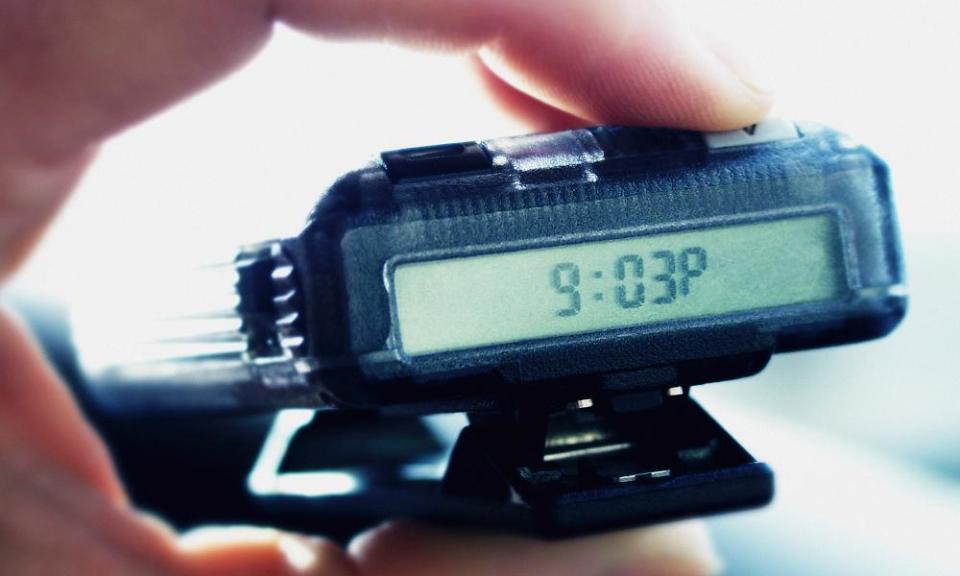Still buzzing: the people using pagers in 2017

In the 1990s, it was cool to have a pager. When the beep sounded in your bag or on your belt, it delivered one message to you and another to those nearby: that you were so rich or important that people needed to contact you all the time. Now we’re all rich and important, thanks to mobile phones, but a few of us still use pagers. On Tuesday, it was announced that Vodafone, one of the last two paging providers, had agreed to sell its business to Capita, the other one. Subject to the regulators’ approval, this means about 1,000 customers will be switching over, after which there will be one provider left to rule all of Britain’s pager users.
But who are these people exactly? Put simply, they are anyone who needs the one remaining technical advantage that pagers have: slightly more reliability. Where mobile phone networks can be patchy, or slow, or overloaded, the separate paging network offers a modest improvement in reception and reach, especially in rural areas. Compared with modern smartphones, pager batteries also last much longer.
Thus some infrastructure companies, such as EDF Energy, use pagers to alert their staff when there is problem nearby. Some new pagers also contain GPS trackers, and allow users to reply, which is invaluable for lifeboat crews. Paging services, such as Rare Bird Alert or Bird Information, have also been popular with birdwatchers for many years, delivering information about new sightings as soon as they’re recorded, even to birders in the field.
Most pager users, however, are medics or emergency responders like Liam Lehane, who is assistant director of operations in resilience for the London Ambulance Service. “They’re really good for pushing messages out,” he says. “It’s a system that the NHS uses quite widely.” In fact, the LAS deploys a belt-and-braces-and-another-belt approach by sending texts and emails along with its pager messages. Staff can then reply with their phones or their radio if necessary. Ambulance pagers also deliver messages in three levels, summarised by Lehane as green (“for information”), amber (“I might need to do something”) and red (“I need to deal with it”). “I’m on call currently,” he says, “and it’s gone off about half a dozen times this morning already, with various things that are going on around London.”
Perhaps the main advantage of pagers is not technical at all, but about how they influence behaviour. “When people get a pager message, because it’s not a normal phone call or SMS message, they tend to take notice of it,” Lehane says. This does not merely grab people’s attention, it also saves them embarrassment. While someone might assume you were being rude if you started reading your phone, Lehane explains, they are much more understanding if they see you check your pager. “It just changes people’s attitude and perception,” he says. Though they might think you’re an obsessive birdwatcher, of course.

 Yahoo Finance
Yahoo Finance 